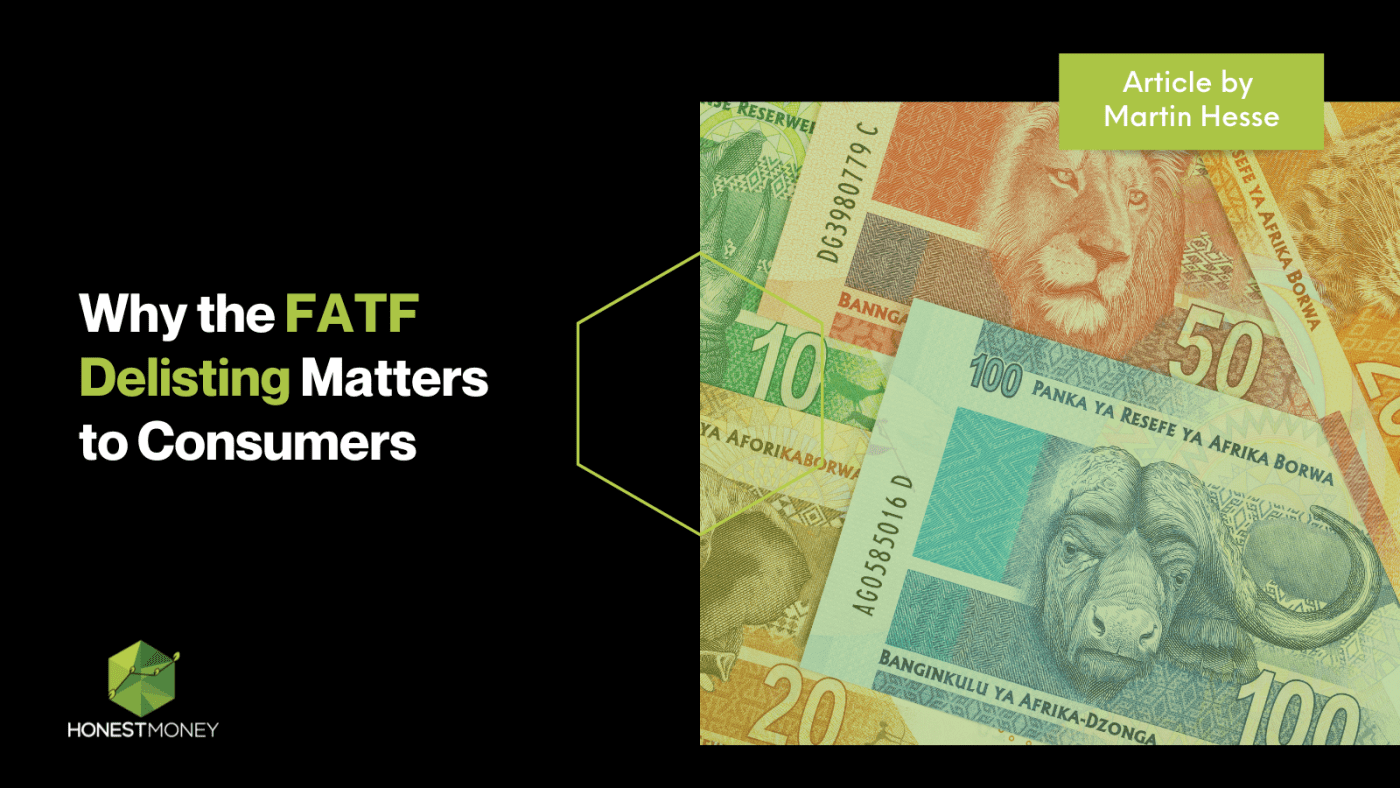Why the FATF Delisting Matters to Consumers

Last week, South Africans received the welcome news from National Treasury that South Africa has been removed from the international Financial Action Task Force (FATF) grey list, which it has been on since February 2023. The reaction from the financial sector has been positive, as expected. But what does this mean for consumers?
On Friday, 24 October, Treasury released a statement announcing that South Africa had exited the grey list, formally called the list of “Jurisdictions under Increased Monitoring” following meetings of the FATF Plenary in Paris.
This is a list of countries regarded by the FATF as having weaknesses in their financial regulatory controls that can be exploited by criminals laundering money and groups financing terrorist organisations.
In its statement, Treasury said it had “worked tirelessly” to address the deficiencies identified by the FATF and reflected in the 22 items in the agreed action plan. After visiting the country in July and noting Treasury’s progress in implementing the action plan, the FATF officials decided to remove South Africa, along with several other countries, from its grey list.
What did being greylisted mean?
Greylisting was bad for the economy and consumers. At national level, it lowered the confidence of overseas organisations and investors in doing business with South Africa. At transaction level, particularly regarding cross-border flows, it added layers of compliance and due diligence in verifying the identities and legitimacy of the transacting parties and establishing the purpose of the transaction.
In June, Momentum Investments chief economist Sanisha Packirisamy told CityWire that being on the grey list tarnished South Africa’s image as a reliable financial hub, with perceptions of weak enforcement against money laundering and corruption. It labelled South Africa as a high-risk jurisdiction, deterring investors wary of regulatory scrutiny or reputational risk.
She said the grey listing had imposed stricter due diligence requirements on South African banks and businesses, especially for cross-border transactions, and this had increased operational costs.
An immediate boost
Packirisamy said a FATF delisting from its grey list could encourage foreign funds to re-enter South African markets, particularly where restrictions were in place related to the grey listing.
“Delisting would demonstrate compliance with global standards, rebuilding trust with reputable international financial institutions and making South Africa a more attractive destination for business and investment,” she said.
From a financial planning perspective, Galileo Capital’s Warren Ingram believes South Africa’s removal from the FATF grey list will have very positive long-term consequences for practices and their clients.
“The immediate benefit is the positive sentiment created by the good news. It is bittersweet because our politicians caused South Africa to be grey-listed through corruption and incompetence, but the turnaround was driven by business and a few competent technocrats in government, and we should celebrate their efforts.
“Over time, international banks will remove us from the list of countries that require enhanced due diligence on financial transactions. This will speed up the time taken to do transactions and reduce the costs per transaction. It will also enable some transactions to flow again. For instance, some Euro-denominated transactions were not possible when South Africa was grey-listed because certain European banks simply refused to deal with grey-listed countries due to the perceived risks. For our practice, it means less unnecessary administration and frustration and accelerated speed of doing business, which makes for happier clients,” Ingram says.
Lenee Green, Lerato Lamola and Michael Denega, partners at law firm Webber Wentzel, say a positive outcome following the FATF’s involvement is the ongoing commitment by South Africa to demonstrate effective measures to identify and prosecute financial crime.
They also warn that, although there is excitement following South Africa’s successful delisting, the country is not completely off the FATF’s radar. “The next round of mutual evaluations by the FATF will be in 2026/2027, when it will assess whether South Africa continues to maintain the standards required by its recommendations,” Green, Lamola and Denega say.
Author
-

Martin is the former editor of Personal Finance weekend newspaper supplement and quarterly magazine. He now writes in a freelance capacity, focusing on educating consumers about managing their money
View all posts


